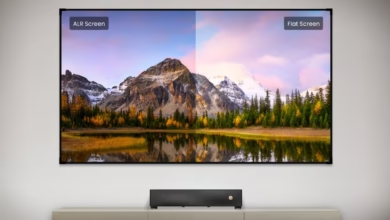
Are We Editing Reality? Ethics in Real Estate AI Photo Editing
A perfect sky. A warmer glow through the windows. A greener lawn that looks freshly watered. These small changes can make a property look incredible, and that is the point. But as real estate ai photo editing becomes faster and more powerful, a new question is emerging. Where is the line between enhancement and deception?
We have reached a point where AI can turn a cloudy day into a sunset or fill an empty room with furniture in seconds. It is efficient, creative, and undeniably effective. But if buyers expect what they see, what responsibility do photographers and agents have to keep things honest?
Table of Contents
The Thin Line Between Accurate and Artificial
Photo editing has always been part of real estate marketing. Adjusting exposure, balancing light, or straightening a shot are standard steps that correct how cameras misrepresent reality. But when AI enters the mix, editing can shift from correction to creation.
AI tools used in real estate ai photo editing can alter scenes beyond recognition if they are not used carefully. For example:
- Turning a dull lawn into a lush green field
- Adding warm light to create a sunset that never existed
- Removing distracting items that might actually affect the space
While these edits improve aesthetics, they can also mislead buyers if transparency is missing. The ethics come down to intention. Are we showing the property at its best, or inventing something that is not there?
Why Ethical Editing Matters
In real estate, trust is everything. Buyers rely on visuals to make major financial decisions. When photos exaggerate reality, credibility suffers and legal risks can follow.
That is why photo editors for real estate and agents need clear standards. Most MLS boards already restrict heavy manipulation, but real estate ai photo editing has blurred the boundaries. Even a small digital change can push a property outside what is considered accurate representation.
The key ethical principle is simple: edit to clarify, not to falsify.
Enhancing brightness to show true lighting conditions is fair. Adding or changing permanent features crosses the line.
The Role of Disclosure
As real estate photo editing services adopt AI at scale, transparency becomes essential. A simple disclosure such as “Images have been digitally enhanced” can maintain honesty without reducing visual appeal.
Many agents already label virtual staging or twilight conversions as edited, setting clear expectations and building trust. Buyers appreciate honesty more than perfection.
For photographers, disclosing digital enhancements is not only ethical, it is professional. It shows that we care about accuracy even as we use real estate ai photo editing to work faster and smarter.
Where Technology Meets Responsibility
With online AI real estate photo editors, editing is nearly instant. The danger is not just over-editing. It is how easy it is to cross that line without realizing it. AI models do not have judgment; they simply follow prompts. That means the ethical responsibility stays with us.
Responsible editing starts with intention:
- Correct exposure and balance, but avoid unrealistic lighting.
- Remove clutter, not permanent features.
- Enhance skies and tones only to match natural conditions.
- Use virtual staging with clear labeling.
These small choices maintain integrity while keeping visuals attractive and competitive.
How AutoHDR Balances Speed and Authenticity
This is where technology built with responsibility in mind makes a difference. Tools like AutoHDR automate real estate ai photo editing without pushing creative limits too far.
The platform focuses on realistic corrections such as sky placement, white balance, window masking, and image straightening while keeping the original essence intact. It does not fabricate features or alter key details. Instead, it refines what is already there so photos look natural, not artificial.
Because AutoHDR separates sorting from editing, energy and processing power are used efficiently. The result is honest, high-quality imagery delivered quickly and affordably, as low as forty cents per image, without compromising trust.
This kind of editing respects both the property and the audience.
The Coming Wave of Regulation
As AI tools become standard in property marketing, expect more clarity from MLS boards and industry regulators. Some already require virtual staging to be labeled or prohibit digital landscaping entirely.
It is likely we will soon see updated guidelines for real estate ai photo editing that address lighting changes, material alterations, and staging disclosures. The goal is not to limit creativity, but to maintain fairness in representation.
Photographers and agents who adopt ethical AI practices now will be ahead of the curve when those regulations arrive.
The Future of Real Estate Imagery
We have entered a new era where real estate AI photo editing does not just fix photos; it shapes perception. The power to enhance is also the power to mislead, and how we use that power defines our professionalism.
AI editing is not the problem. Misuse is. When we balance innovation with integrity, we elevate the entire industry, creating images that inspire trust instead of doubt.
The future of property visuals does not depend on avoiding AI. It depends on using it responsibly, transparently, and creatively so that every photo remains what it should be, a true reflection of reality at its best.








